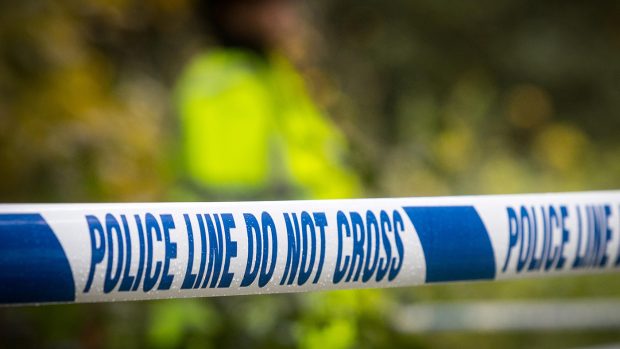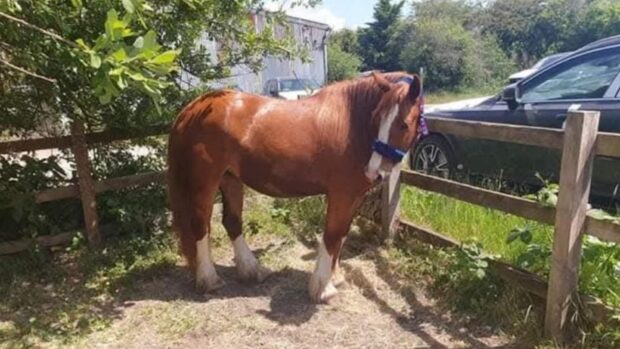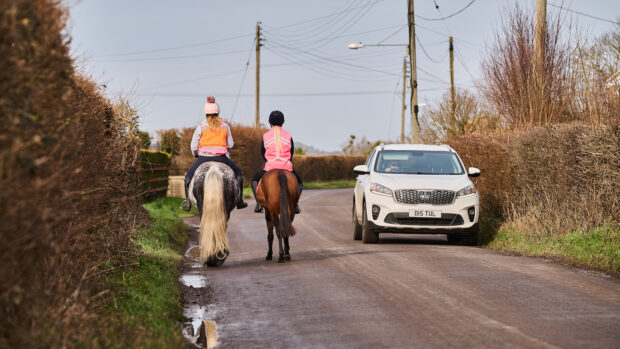A rider is urging drivers to think before following sat navs down unsuitable country lanes after she was knocked unconscious when her horse spooked at a four-by-four towing a six-berth caravan.
Sue Feast was riding her nine-year-old Appaloosa stallion, Peyres Sully Cortez, in June 2013 down a single-track lane in Hampshire when the vehicle approached and failed to slow down. She was wearing a high visibility vest and had reflective straps on both her strirrups.
“My horse spooked and spun around and as he did he struck the side of the caravan with his hindquarters,” she said. “He then slipped, and went down on his fetlock and I went over his shoulder.”
Ms Feast was knocked unconscious for several minutes, broke a rib and dislocated several fingers. She also had to see a psychiatrist to help her to overcome her fear of riding on the road as result of the incident.
Ms Feast took legal advice and pursued the case several weeks after the accident, and earlier this month (22 January) was awarded £8,100 compensation for her physical and psychological rehabilitation.
Hanna Campbell from Horsesolicitor said that unfortunately the firm deals with a high number of road accident claims “that arise as a result of the third party negligently towing a caravan or flatbed trailer past horse and rider”.
“We were delighted to obtain an early admission of liability for our client, which meant that she was in a position to concentrate on her recovery from an early stage,” she added.
Ms Feast now wants to raise awareness of the problems caused by people following sat navs down inappropriate routes.
“The driver had come from Yorkshire so had been driving for two or three hours before he hit me,” she told H&H.
“He had no experience of driving on country lanes with horses. He was just following [his] sat nav, but it obviously didn’t tell him to slow down for horses.”
The British Horse Society (BHS) at the moment does not have evidence to suggest the use of sat navs being a problem. However, the BHS reiterated that any accidents, incidents or near-misses should be reported on its website.
> To report an accident, visit: www.horseaccidents.org.uk
What to do if you are involved in accident
> In a case of serious injury call 999. If less serious, report the accident to the police on 101.
> Take details of any other parties involved in the accident, including registration numbers.
> See if there are any witnesses who will give you their details, and take names, addresses and phone numbers.
> Take photographs of the accident scene and any vehicles and animals involved. In the case of vehicles, try to take pictures of the number plate, any damage, and its position on the road.
> Call a solicitor sooner rather than later. People are usually far more willing to admit liability for something they’ve done in the immediate aftermath than when you try to bring a claim two years down the line.
Advice by Hanna Campbell, director of Horsesolicitor.
Ref: Horse & Hound; 5 February 2015




